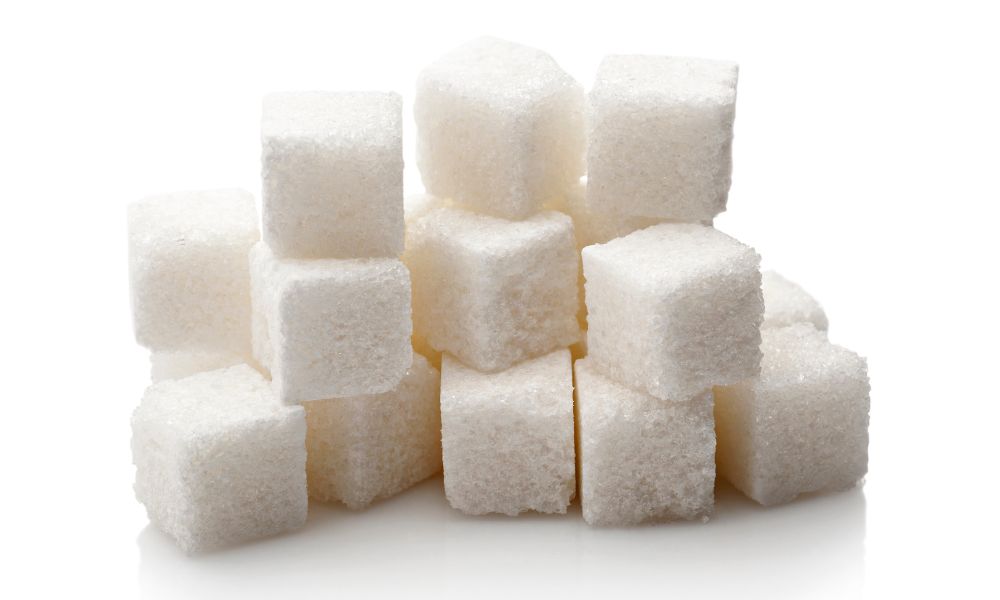Are You Eating Too Many Hidden Sugars? If you’re asking this, chances are you’re trying to improve your diet and avoid hidden health risks. The truth is, the average American consumes 17 teaspoons of added sugar per day, far more than the recommended limit of 6–9 teaspoons by the American Heart Association. Hidden sugars lurk in “healthy” foods like yogurt, granola, sauces, and salad dressings, making it easy to overconsume without even realizing it. In this article, we’ll uncover the most common hidden sugar traps, how to spot them on labels, and simple strategies to reduce your intake while still enjoying your meals.
👇 Take the quiz below and see your sugar score. 👇
You need to be registered and logged in to take this quiz. Log in
Food With Hidden Sugar
You might think you’re eating healthy, but sugar has a sneaky way of hiding in everyday foods—especially the ones labeled “low-fat,” “all-natural,” or even “whole grain.” The average American consumes 17 teaspoons of added sugar per day, much of it unknowingly. These hidden sugars can sabotage your weight loss goals, cause energy crashes, and disrupt blood sugar balance. In this guide, we’ll uncover the most common foods with hidden sugar so you can shop smarter, eat cleaner, and stay in control of your health.
🥣 Breakfast Foods
- Flavored yogurts
- Granola and cereal (even “whole grain” ones)
- Instant oatmeal packets
- Protein bars and meal replacement shakes
- Pancake and waffle mixes
🍞 Breads & Grains
- Whole wheat bread
- Hamburger buns and bagels
- Wraps and tortillas
- Pre-packaged rice and pasta dishes
- Crackers (especially “multi-grain” or “low-fat”)
🥫 Sauces, Dressings & Condiments
- Ketchup
- BBQ sauce
- Teriyaki sauce
- Salad dressings (especially “fat-free”)
- Marinades and glazes
- Pasta sauce and canned tomato products
🍲 Savory Packaged & Frozen Foods
- Canned soups and broths
- Frozen dinners and pizzas
- Baked beans
- Flavored rice or noodle packs
- Instant noodles
🍹 Beverages
- Flavored water
- Sports and energy drinks
- Bottled iced tea
- Fruit juice (even 100% natural juice)
- Plant-based milks (almond, oat, etc., if sweetened)
🍪 Snacks & “Health” Foods
- Trail mix with dried fruit or chocolate
- Flavored popcorn
- Fruit-flavored snacks or “fruit leather”
- Nut butters with added sugar
- Rice cakes (especially caramel or flavored ones)
🍬 Surprising Sweet Offenders
- Coleslaw
- Balsamic glaze
- Peanut butter (non-natural brands)
- Instant coffee mixes or flavored creamers
- Sliced deli meats with glazes or honey
Healthy Swaps for Hidden Sugar Foods
| Hidden Sugar Food | Healthier Alternative |
|---|---|
| Flavored yogurt | Plain Greek yogurt + fresh berries or cinnamon |
| Sugary cereal or granola | Homemade granola or steel-cut oats |
| Ketchup or BBQ sauce | No-sugar-added versions or homemade sauces |
| Bottled iced tea | Unsweetened iced tea with lemon or mint |
| Fruit juice | Infused water or a splash of juice in sparkling water |
| Salad dressing (fat-free) | Olive oil + balsamic vinegar or lemon juice |
| Instant oatmeal packets | Plain oats + chia seeds and banana slices |
| Flavored coffee creamers | Unsweetened almond milk or coconut milk |
| Peanut butter (with sugar) | Natural peanut or almond butter (just nuts & salt) |
| Snack bars or trail mix | DIY trail mix with nuts, seeds & dark chocolate |
Tips for Spotting Hidden Sugar on Labels
Stick to Whole Foods
The fewer ingredients, the better. Real, whole food usually doesn’t need a label.
Check the Ingredients List First
Look for words like:
- Sucrose, glucose, dextrose
- Corn syrup or high-fructose corn syrup
- Cane sugar, brown rice syrup, agave nectar, maltose
- Anything ending in “-ose” is likely sugar!
Look at “Added Sugars” on the Nutrition Label
Aim for no more than 25g (6 tsp) for women and 36g (9 tsp) for men daily (American Heart Association).
Beware of “Healthy” Buzzwords
Terms like “natural,” “organic,” “low-fat,” or “diet” don’t mean sugar-free. Many of these are sugar-loaded to compensate for the lack of taste.
Your Sugar Score Results Are In… Now What?
Whether your sugar intake is low, moderate, or high, being aware is the first big step toward better health. Even small changes can have a significant impact on your energy, mood, gut health, and overall well-being.
